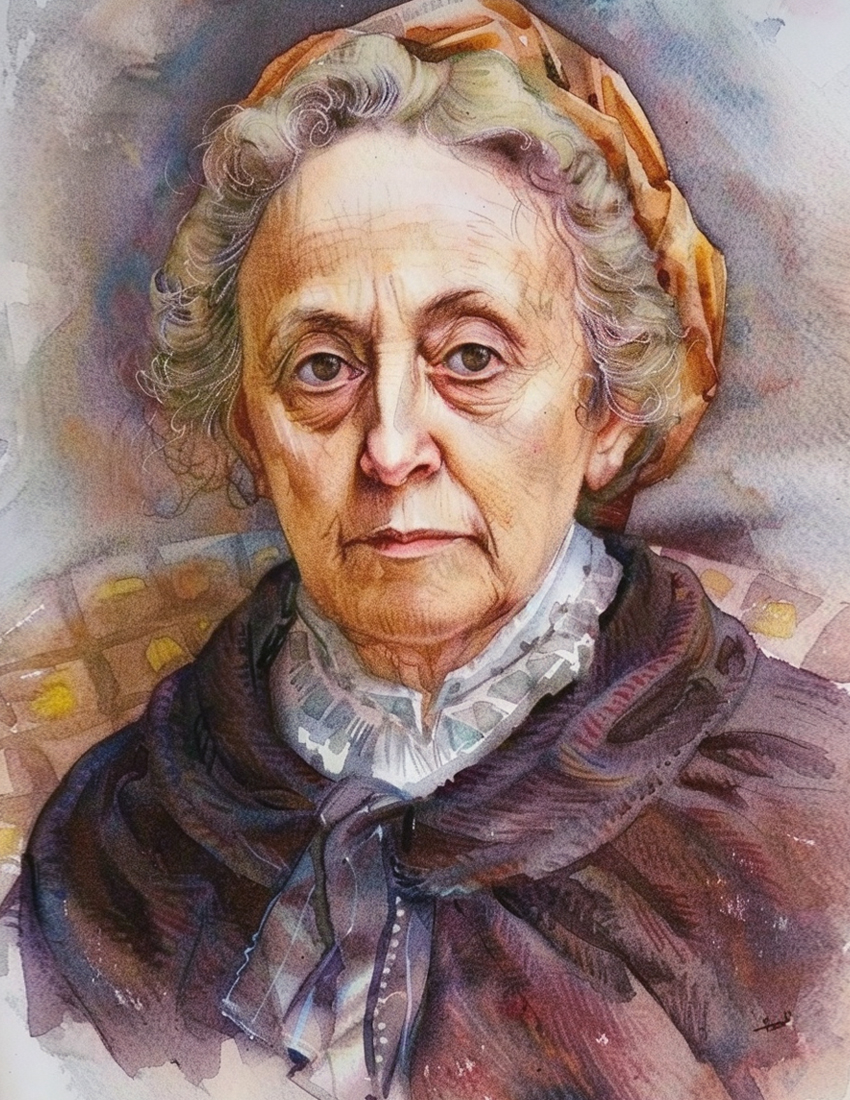Born: October 26, 1818, Portland, ME.
Died: August 13, 1878, Dorset, VT.
Buried: Maple Hill Cemetery, Dorset, VT.
Elizabeth Payson Prentiss

Hymns by Elizabeth Prentiss
In a modest home in Portland, Maine, on October 26, 1818, a child was born whose life would become a symphony of faith, literature, and love. Elizabeth Payson Prentiss, the fifth of eight children, entered a world steeped in New England Christianity and Puritan tradition. Little did anyone know that this infant would one day pen words that would echo through generations:
More love to Thee, O Christ, more love to Thee!
Hear Thou the prayer I make on bended knee.
Elizabeth’s father, Edward Payson, a devoted Congregationalist pastor, set the tone for the family’s spiritual life. The Paysons gathered thrice daily for prayer, instilling in young Elizabeth a deep reverence for God and His Word. Edward’s influence on his daughter was profound, though brief. When Elizabeth was just nine years old, tuberculosis claimed her father’s life, leaving an indelible mark on her heart and shaping her future writings.
A Pen Dipped in Faith
The Lord’s hand was evident in Elizabeth’s life from an early age. At sixteen, her stories and poems found their way into the pages of “The Youth’s Companion,” a respected New England religious periodical. Her words, even then, carried the weight of a soul intimately acquainted with her Savior.
As Elizabeth blossomed into young womanhood, she made a public profession of faith in Christ, joining the Bleecker Street Presbyterian Church. This act of devotion would set the course for a life lived in service to God and others.
Love and Loss in New Bedford
God’s providence led Elizabeth to George Lewis Prentiss, a kindred spirit and fellow laborer in the Lord’s vineyard. Their union in 1845 brought Elizabeth to New Bedford, Massachusetts, where George took up the mantle of pastor at South Trinitarian Church.
In New Bedford, Elizabeth embraced her role as a pastor’s wife with characteristic grace and compassion. Despite her own chronic health issues, she became a beacon of hope to the sick and bereaved. Her presence in sickrooms and houses of mourning was like a shaft of sunlight breaking through storm clouds.
Yet the Lord saw fit to test Elizabeth’s faith through trials of her own. Within a span of three months in 1852, she lost two of her beloved children – four-year-old Edward and newborn Bessie. In the crucible of this heartache, Elizabeth’s faith was refined, and her pen found new purpose.
A Voice for the Suffering
From the depths of her grief, Elizabeth’s writing took on a new dimension. Her words, now tempered by sorrow, spoke to the hearts of those who knew suffering intimately. In 1869, she penned “Stepping Heavenward,” a novel that would touch countless lives with its message of faith in the face of adversity.
Elizabeth’s own words best capture her perspective on suffering:
“There is no wilderness so dreary but that His love can illuminate it, no desolation so desolate but that He can sweeten it. I know what I am saying. It is no delusion. I believe the highest, purest happiness is known only to those who have learned Christ in sickrooms, in poverty, in racking suspense and anxiety, amid hardships, and at the open grave.”
A Legacy of Love
Elizabeth Payson Prentiss’s life was a testament to the transformative power of God’s love. Her writings, born from personal experience and deep faith, continue to offer comfort and inspiration to readers today. From children’s stories to novels and hymns, her words point unfailingly to the source of all comfort – Christ Himself.
As Elizabeth’s earthly journey drew to a close in Dorset, Vermont, in 1878, she left behind a legacy that continues to shape hearts and minds. Her most famous hymn, “More Love to Thee, O Christ,” sung at her funeral, encapsulates the cry of her soul and the theme of her life:
Then shall my latest breath whisper Thy praise;
This be the parting cry my heart shall raise;
This still its prayer shall be: More love, O Christ, to Thee;
More love to Thee, more love to Thee!
Elizabeth Payson Prentiss’s life reminds us that in God’s hands, our deepest sorrows can become wellsprings of ministry to others. Her journey from a pastor’s daughter in Portland to a beloved author and hymn writer is a powerful illustration of how the Lord uses yielded lives to touch the world with His love.

